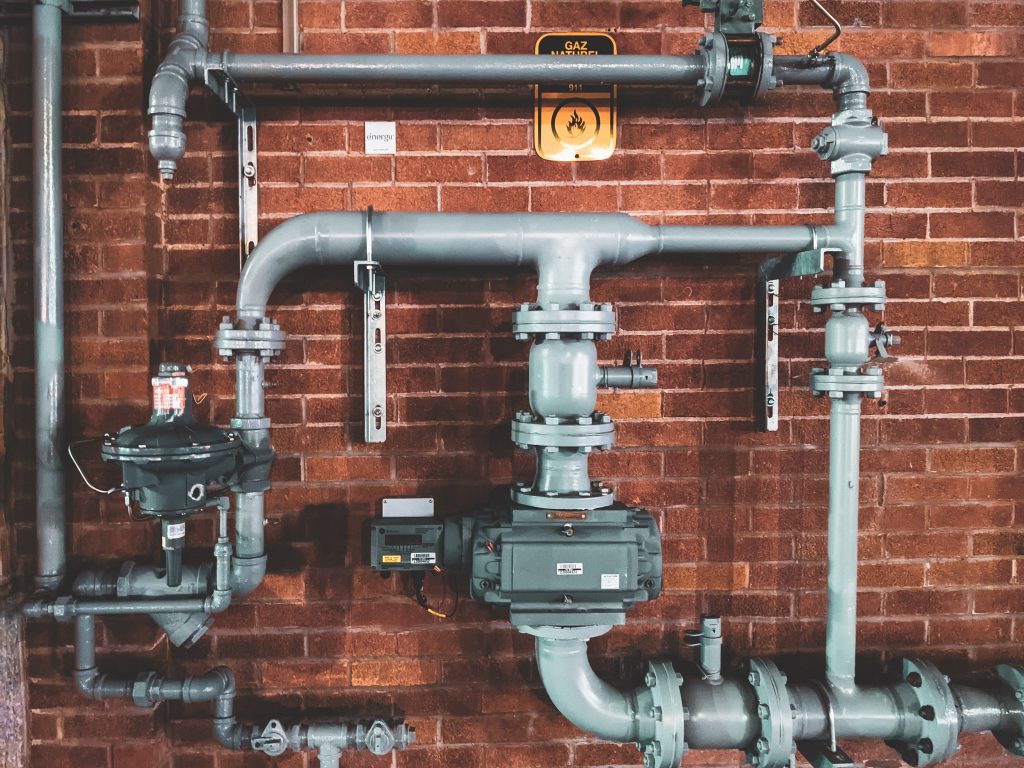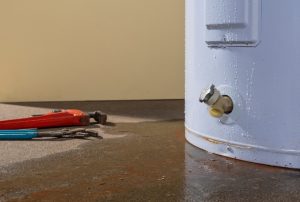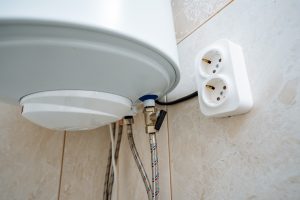Gas leaks are a serious issue in homes and businesses, but what does a gas leak smell like? There are many different types of gases that can cause this problem. Natural gas is one of the most common causes, so let’s start with it!
A natural gas leak smells like rotten eggs or sulfur because the odorant added to the gas is mercaptan. It has a powerful odor that helps people identify when there is a potential for danger. Plus, it makes the gas detectable by the machine.
If you smell a gas leak, call your local emergency line and don’t do anything that could cause a spark or flame until they arrive on-scene to mitigate the issue! Let’s get into the article and learn a little bit more about what to look out for.
What does a gas leak smell like?
A gas leak smells like rotten eggs or sulfur. Sulfur is used in many chemical processes to make other chemicals, including the compound added to natural gas for odorizing it. So a gas leak smells like rotten eggs.
Odorless methane or natural gas leaking into the air from a pipeline, storage facility, distribution line, or other equipment can be dangerous if not caught in time because of its potentially explosive power.
A foul smell warns you to contact your utility company and get an inspection performed immediately before it becomes a serious problem. The best way to tell whether you have a hazardous situation on your hands is by being able to detect odors from leaks at all times during the everyday use of appliances such as furnaces and water heaters.
To do this effectively, homeowners need devices capable of detecting even the slightest changes in their environment with minimal expenditures being made when going about.
How to know if you have a gas leak
What does a gas leak smell like in a house? There are many different ways to identify if you have a gas leak. Some are more obvious than others.
Some of the most common ones include:
- A sweet, fruity odor – usually indicates natural gas leaks from pipes that run through fruit orchards
- A rotten egg odor – usually indicates natural gas leaks from pipelines carrying ethane and methane
- A sulfurous odor – typically indicates propane tank leaks
This is not an exhaustive list.
If you suspect a gas leak, evacuate the area immediately and call 911. Don’t light matches or turn on electrical switches until authorities arrive as this could cause an explosion.
Please note that some people have unique sensitivities to certain smells, which means they can smell something other people can’t, so all family members need to be aware of what each type of odor associated with natural gas leaks may seem like if encountered in your home.
Prevention of gas leaks
Checking your appliances is by far the best way to prevent gas leaks in your home. The most important ones to check are the water heater, furnace/AC unit, stovetop, oven, and dryer. Doing regular maintenance can not only prevent gas leaks but also increase your appliances’ lifespan.
Make sure you don’t try to do this on your own if you aren’t familiar with working with gas lines or other plumbing matters — call a professional instead. When checking the water heater for signs of a gas leak, it’s essential that you turn off all power before getting too close.
You should look around the base of the water tank for any discoloration caused by rusting as well as condensation underneath it. It might be difficult to tell since there are so many layers involved in these areas, so don’t hesitate to ask someone who has experience dealing with this appliance.
The leak must also be repaired quickly to prevent natural gas from escaping into the air, where it may mix with oxygen and cause an explosion. When mixed in the air, gas has no color or odor at normal concentrations of one part per million (ppm).
However, people should still be able to smell it at this concentration. Humans can usually sense very low levels of other gases such as hydrogen sulfide, which are extremely dangerous even at much higher concentrations.
Signs of an imminent explosion
Explosions are unlikely, but they can happen. A gas explosion is hazardous because the blast and fire are immediate and severe, but they dissipate quickly, leaving nothing more than a lingering acrid smell.
If you suspect that there may be a leak of natural gas or propane, here are some telltale signs:
- A hissing sound
- An acrid smell that is similar to rotten eggs or a skunk’s spray
- Rubber objects, such as gloves or boots, may be destroyed by the gas.
All these are signs of an imminent explosion, so get out immediately and call emergency services if you suspect any of them. Remember to stay away from windows in case they shatter. Don’t go back for anything until emergency responders have cleared it because even lighted cigarettes can cause explosions.
Tips for preventing gas leaks in your home or office building
Tip #1
Check your appliances regularly, such as the oven, stove, furnace, or dryer vent connection inside the house and outside of the building structure. It’s also a good idea to keep an eye out on all other gas lines and their connections in both interior and exterior areas of the house or building.
If there are leaky connectors, repair or replace them immediately with new ones. Also, shut off the main supply before beginning repairs, especially working near the flammable area(s).
Tip #2
For safety reasons, do not store flammable liquids under your oven or close to other heat sources such as water heaters, furnaces, etc.
Even if stored in closed containers, these items can still pose a fire hazard if placed too closely together.
Also, be sure that anything you put near them does not come into contact with any exposed flame from above (such as water heater pilot lights). In addition to being dangerous, it could result in expensive property damage should something ignite or explode.
Tip #3
If you smell gas, don’t turn it off yourself; rather, call the utility company immediately. Only they can shut off your gas safely.
If there is no odor, if possible, take a quick walk around all of your appliances and see if any are leaking liquid propane (LP) fuel which will have an acrid sulfur-like smell to it.
This odor means that you have at least one small leak somewhere in the system, so avoid using anything electrical or with open flames until you know where the problem lies.
How we can help
American Home Water & Air has been serving Phoenix, Arizona and the surrounding area for more than 35 years. We provide reliable and transparent plumbing, heating and cooling, and air conditioning services for your home or business at fair prices.














